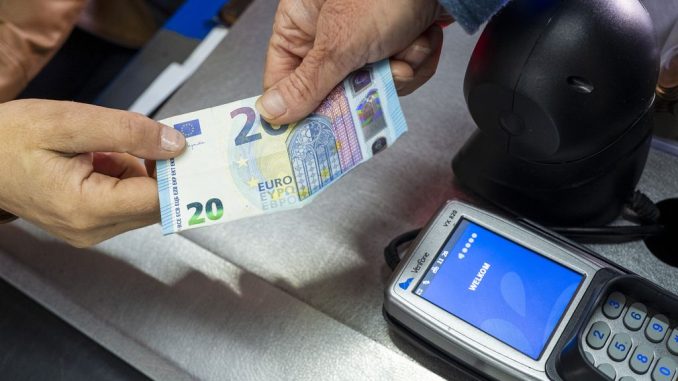
High price increases almost under control, DNB sees
The end to the extreme price increases in shops and supermarkets is in sight. This year and in 2025, prices will rise by 2.8 percent, before falling below the normal level of 2 percent in 2026. This means that the economy is also growing slightly again, according to the so-called new Spring estimate of De Nederlandsche Bank (DNB).
In the estimate, DNB concludes that the economy is making “a soft landing” after several turbulent years, in which the corona pandemic was quickly followed by the energy crisis with historically high inflation. “The economy is on a moderate growth path,” DNB concludes.
In addition to government expenditure, it is mainly the consumer who contributes to economic growth. Households that spend more money are an important growth driver, DNB sees. This is due to high employment, continued consumer confidence and increased salaries.
Companies also contribute to growth. They will invest less this year, but more next year and in 2026. Exports are also on the rise again.
Yesterday the European Central Bank (ECB) decided to lower interest rates again. In recent years, major interest rate increases have been attempted to curb high inflation.
According to DNB board member Olaf Sleijpen, the high ECB interest rates have worked to curb inflation, but he believes that the battle has not yet been definitively won. “Price stability of 2 percent is within reach. But we are not there yet. People have not forgotten the high prices and there are people who are still affected by them. wage increases this year we can still make up for something.”
Unrest
In addition, the ongoing geopolitical unrest in the world can also throw the forecasts into disarray. “The risks to economic growth mainly come from abroad, with all the conflicts we see,” says Sleijpen. “If they decrease, that is good news. If they worsen, this will have consequences for economic policy.”
By this, DNB mainly refers to the plans of the outgoing cabinet and those from the coalition agreement of PVV, VVD, NSC and BBB. In DNB’s view, too much money is being spent on this, which could cause the budget deficit to increase too much in the medium term.
This could lead to problems if a new crisis breaks out. “The margin is very small,” says Sleijpen. “If there are setbacks, you have to make adjustments. And that may not come at the right time. We have seen during corona times that it is good to have room in the budget.”

Be the first to comment